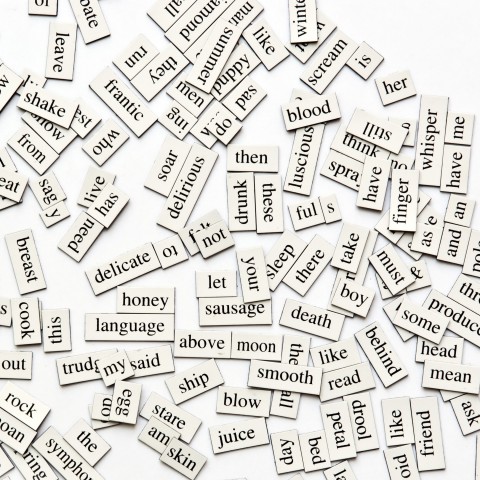
In many ways, language is both a culmination and an expression of culture. It allows for not only effective communication, but also communication that’s relevant in a given place, time, and context.
In this article, you’ll learn how people in the Philippines celebrate Buwan ng Wika (Filipino Language Month) and gain some insight into the importance of the Filipino language.
Let’s get started.

1. What is Filipino Language Month?

For the entire month of August in the Philippines, people celebrate Buwan ng Wika, or Filipino Language Month. This holiday seeks to shed light on the importance of the Filipino language and the pagkakaisa (“unity”) it brought to the country. While the status of the Filipino language in the Philippines is debated, it serves as a marker of pagkakakilanlan (“identity”) for many!
Before we cover how Filipinos celebrate Filipino Language Month, let’s see a few facts about Buwan ng Wika and the Filipino language.
- → First, why not check out this list of the Must-Know Filipino Idioms That Will Make You Sound Like a Native Speaker?
1 – Filipino or Tagalog?
First, let’s clear the air. Are we talking about Filipino or Tagalog here (or any of the other 120+ languages spoken in the Philippines)?
Many people are unsure of the difference between Tagalog and Filipino, and for good reasons. The thing you need to remember is that Filipino is basically a standardized version of Tagalog, making the two languages extremely similar, with nuanced differences.
Buwan ng Wika celebrates the Filipino language specifically, though you should also note that most Filipino people speak Tagalog as their second language (and nearly a quarter speak it as their first).
One of the Philippines’ official languages, Filipino has had a major role in unifying the bansa (“country”) through a more standard language.
- → Here’s some Essential Vocabulary for Talking About the Language!
2 – History and Meaning of Buwan ng Wika
Buwan ng Wika was first celebrated in 1946 as a week-long holiday that coincided with the birthday of a famous Tagalog literary artist, Francisco Baltazar. This holiday lasted from late March to early April, though the dates were changed four times!
In 1997, then-President Fidel V. Ramos signed a Proclamation that the holiday would now be a month-long celebration in August. This new timeframe allowed the holiday to coincide with the birthday and death anniversary of former President Manuel L. Quezon, who’s often labeled “The Father of the Filipino Language.”
- → Curious to learn more? Log in to view our lesson on the Top Five Things You Need to Know About Filipino Society!
2. Celebrations and Events for Filipino Language Month

On August 1, there’s often a flag-raising ceremony and a speech about the relevance and significance of the Filipino language in modern times. The rest of the month is filled with tons of educational activities and events, usually geared toward children and younger generations. Each year, there’s a new Buwan ng Wika theme, focusing on a specific aspect of the language or kultura (“culture”).
If you decide to visit the Philippines in August, definitely plan on attending one or more of the special events that take place throughout the country.
1 – Buwan ng Wika Dance Competitions & Events
In different parts of the country, you’ll likely find a variety of dance competitions and events throughout August. During these events, many Filipinos and Filipinas enjoy doing a fun katutubong sayaw (“folk dance”), though there are also recent trends toward more modern dance styles.
2 – Balagtasan (“Poetic Debate”)
During Buwan ng Wika, spoken poetry showings and poetic debates are common throughout the Philippines. How better than through a well-crafted tula (“poem”) in one’s language to show appreciation for it?
In addition to these poetry readings and debates, many students are encouraged to participate in essay competitions. The topic of the essay usually correlates to the year’s theme.
3 – Exhibits & Parades
There are many art and culture exhibits promoting the Filipino language, culture, and panitikan (“literature”) throughout the country. In addition, there are many parades during August that showcase different aspects of Filipino culture.
4 – School Programs
Many schools like to get involved with the Buwan ng Wika celebrations, using games and fun lessons to teach students about the Filipino language and culture.
3. Kuwentong-bayan (“Folk tale”)

Oral storytelling has played a huge part in many cultures, and this is certainly true of the Philippines. There are numerous folk tales of Philippine origin, and during Buwan ng Wika, it’s not uncommon for people to tell these stories among themselves or for an audience.
You may be familiar with the adage, “Haste makes waste.” Well, there’s a Filipino story with the same general message about the importance of taking your time.
In this story, a man needs to travel a long distance on horseback with several coconuts in tow. Along the way, he meets a boy and asks him how much longer he’ll need to travel until he reaches the house. The boy tells him that if he travels slowly, he’ll get there early; if he travels quickly, he’ll get there late. Not understanding, the man sped up his horse only to have the coconuts fall off; he gathered them up again, and sped up the horse to the same effect. Because he didn’t take his time, he didn’t reach the house until after dark.
- → Oral communication is great, but who doesn’t like a good book? Check out our list of the essential vocabulary for Talking About Books!
4. Essential Vocabulary for Filipino Language Month

What better way to celebrate Filipino Language Month than by memorizing a few words? Here’s a list of some of the words from this article!
- “Language” — Wika [n]
- “Word” — Salita [n]
- “Culture” — Kultura [n]
- “Literature” — Panitikan [n]
- “Poem” — Tula [n]
- “Legend” — Alamat [n]
- “Folk tale” — Kuwentong-bayan [n]
- “Folk dance” — Katutubong sayaw [n]
- “Essay” — Sanaysay [n]
- “Poetic debate” — Balagtasan [n]
- “Unity” — Pagkakaisa [n]
- “Country” — Bansa [n]
- “Identity” — Pagkakakilanlan [n]
Remember that you can find each of these words with audio pronunciations on our Filipino Language Month vocabulary list!
Final Thoughts
The development and adoption of the Filipino language was certainly a positive turning point for communication in the Philippines, making Buwan ng Wika a meaningful month for the country.
What are your thoughts on this holiday, and the Filipino language in general? Does your country have a special holiday to celebrate its official language? Let us know in the comments!
To continue learning about the Filipino language and culture, check out these free resources from the FilipinoPod101.com blog:
- Internet Slang Words in Filipino That Pinoy Millennials Use
- Learn How to Talk About Your Family in Filipino
- 20 Filipino Angry Phrases, Plus Popular Tagalog Swear Words
- A Guide to Delivering the Perfect Compliment in Tagalog
- Essential Vocabulary for Life Events in Filipino
Whatever your reasons for wanting to learn Filipino or explore life in the Philippines, know that FilipinoPod101 has your back! Create your free lifetime account today and take advantage of our numerous learning tools: themed vocabulary lists, spaced-repetition flashcards, video and audio lessons, and so much more.
Stay safe out there, and happy Filipino learning!










